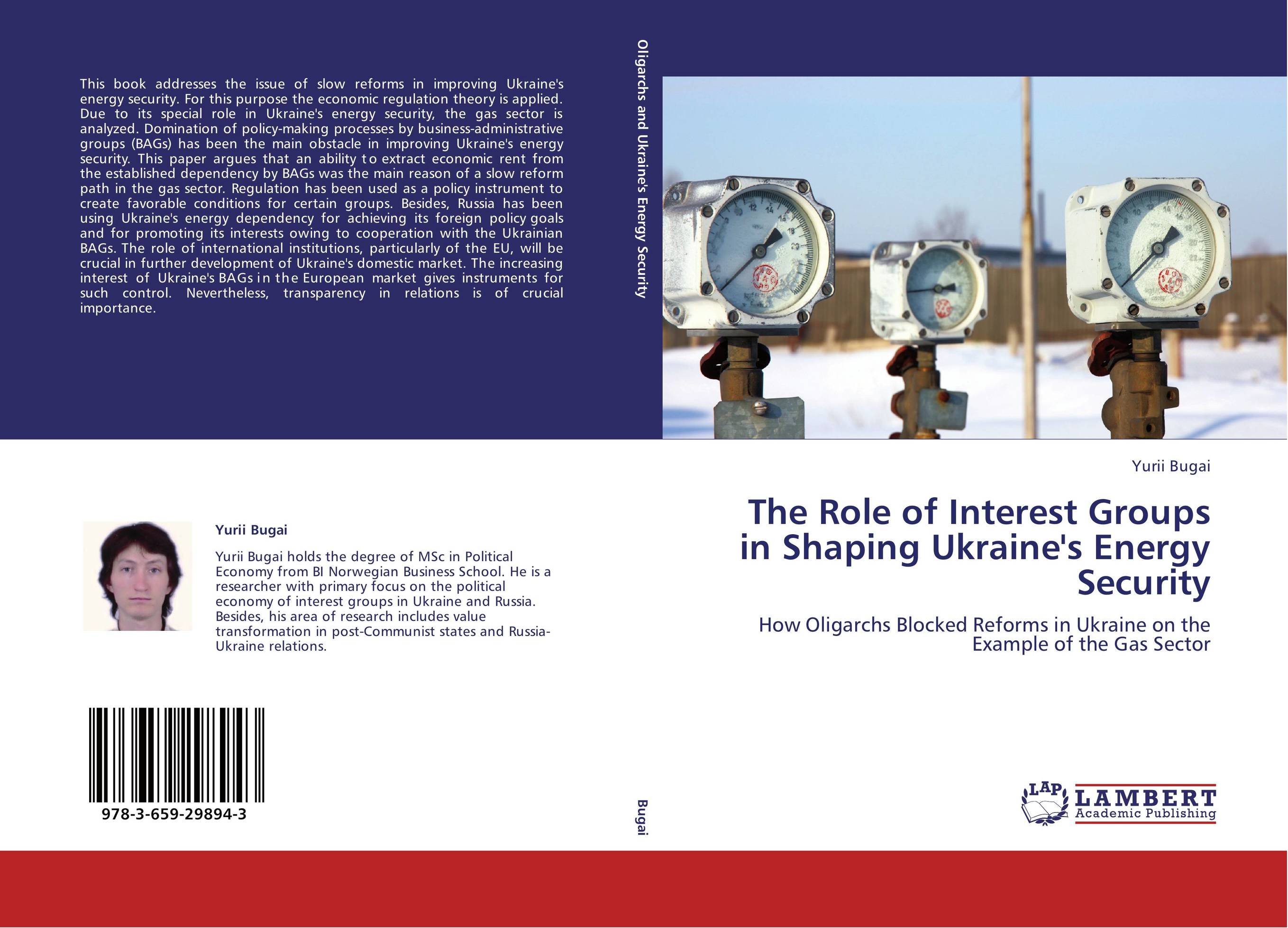| Поиск по каталогу |
|
(строгое соответствие)
|
- Профессиональная
- Научно-популярная
- Художественная
- Публицистика
- Детская
- Искусство
- Хобби, семья, дом
- Спорт
- Путеводители
- Блокноты, тетради, открытки
The Role of Interest Groups in Shaping Ukraine's Energy Security. How Oligarchs Blocked Reforms in Ukraine on the Example of the Gas Sector

В наличии
| Местонахождение: Алматы | Состояние экземпляра: новый |

Бумажная
версия
версия
Автор: Yurii Bugai
ISBN: 9783659298943
Год издания: 2013
Формат книги: 60×90/16 (145×215 мм)
Количество страниц: 152
Издательство: LAP LAMBERT Academic Publishing
Цена: 38342 тг
Положить в корзину
| Способы доставки в город Алматы * комплектация (срок до отгрузки) не более 2 рабочих дней |
| Самовывоз из города Алматы (пункты самовывоза партнёра CDEK) |
| Курьерская доставка CDEK из города Москва |
| Доставка Почтой России из города Москва |
Аннотация: This book addresses the issue of slow reforms in improving Ukraine's energy security. For this purpose the economic regulation theory is applied. Due to its special role in Ukraine's energy security, the gas sector is analyzed. Domination of policy-making processes by business-administrative groups (BAGs) has been the main obstacle in improving Ukraine's energy security. This paper argues that an ability to extract economic rent from the established dependency by BAGs was the main reason of a slow reform path in the gas sector. Regulation has been used as a policy instrument to create favorable conditions for certain groups. Besides, Russia has been using Ukraine's energy dependency for achieving its foreign policy goals and for promoting its interests owing to cooperation with the Ukrainian BAGs. The role of international institutions, particularly of the EU, will be crucial in further development of Ukraine's domestic market. The increasing interest of Ukraine's BAGs in the European market gives instruments for such control. Nevertheless, transparency in relations is of crucial importance.
Ключевые слова: Oligarch Russia Ukraine Energy Security Gas Interest Group Regulation



